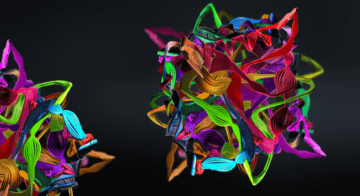David Kakauer in Nautilus:
 In 1938, Yasunari Kawabata, a young journalist in Tokyo, covered the battle between master Honinbo Shusai and apprentice Minoru Kitani for ultimate authority in the board game Go. It was one of the lengthiest matches in the history of competitive gaming—six months. In his 1968 Nobel Prize-winning novel inspired by these events, The Master of Go, Kawabata wrote of the decisive moment when, “Black has greater thickness and Black territory was secure, and the time was at hand for Otake’s [Kitani’s pseudonym in the book] own characteristic turn to offensive, for gnawing into enemy formations at which he was so adept.” A strategy that led Otake to victory.
In 1938, Yasunari Kawabata, a young journalist in Tokyo, covered the battle between master Honinbo Shusai and apprentice Minoru Kitani for ultimate authority in the board game Go. It was one of the lengthiest matches in the history of competitive gaming—six months. In his 1968 Nobel Prize-winning novel inspired by these events, The Master of Go, Kawabata wrote of the decisive moment when, “Black has greater thickness and Black territory was secure, and the time was at hand for Otake’s [Kitani’s pseudonym in the book] own characteristic turn to offensive, for gnawing into enemy formations at which he was so adept.” A strategy that led Otake to victory.
An extraordinarily complex game, Go today has become an epitaph on the tombstone in the cemetery of human defeat at the hands of algorithmic progress. (After the program AlphaGo annihilated Lee Sedol, one of Go’s best players, Sedol retired, saying his opponent was “an entity that cannot be defeated.”)
Charles Darwin was very likely the first person to have understood nature in terms of a game played across deep time. I have wondered how much further the Chess-playing naturalist might have taken this metaphor if, like Kawabata, he had studied Go. Unlike Chess, where the objective is to expose and capture the King by eliminating pieces, in Go the objective is to capture territory by surrounding enemy pieces, called stones, and by protecting unclaimed area.
More here.
